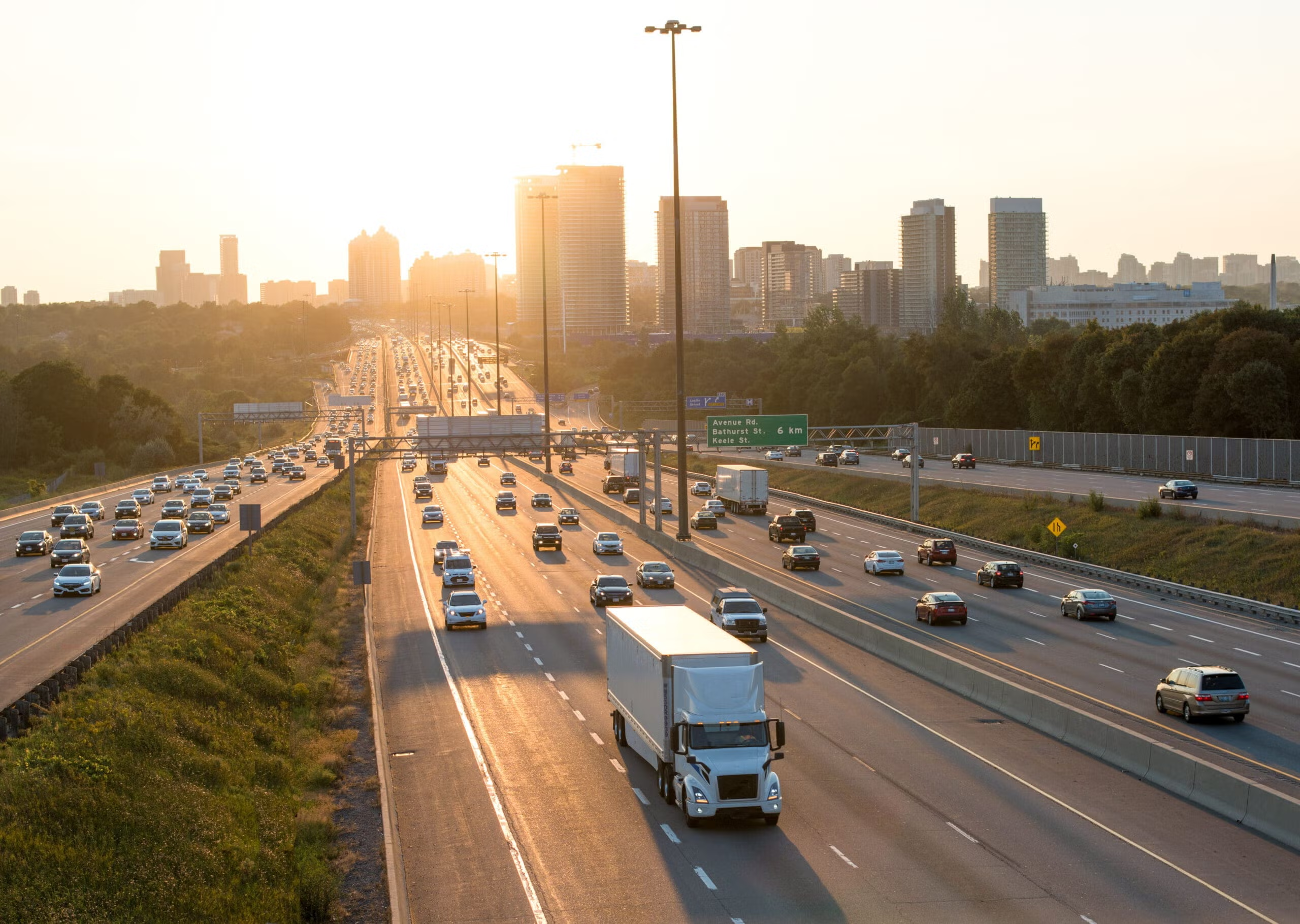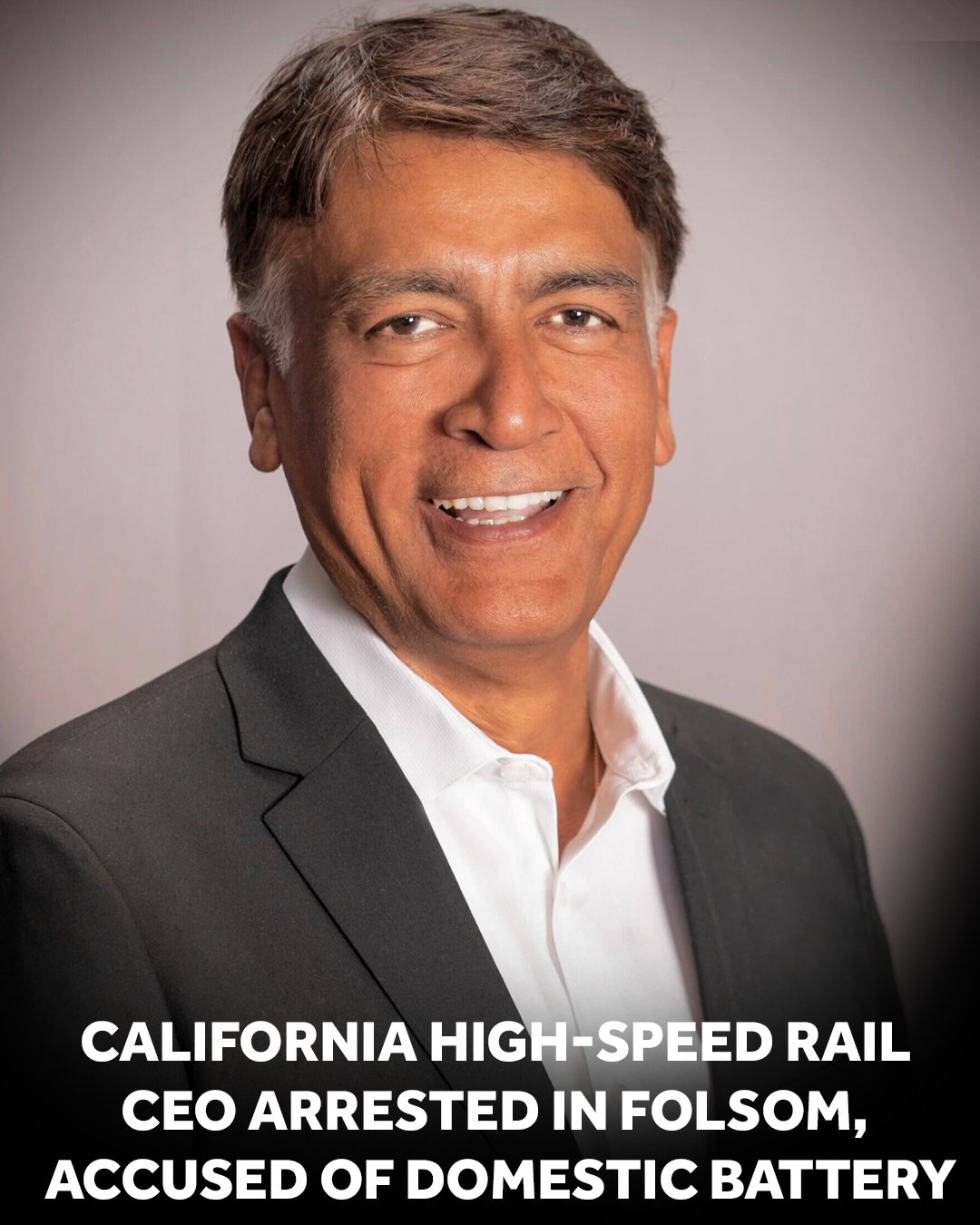In this episode, host Damien Newton welcomes back Zack Deutsch-Gross, the new executive director of Transform, for a wrap-up of California’s 2025 legislative session.
For this podcast, the interview covered three pieces of legislation that were central to Transform's agenda:
- Highway 37 (AB 697): Legislation that fast-tracks a highway expansion project in the North Bay by limiting the environmental review. The legislation passed over Transform and dozens of other groups' objections and is expected to be signed by Governor Newsom. Read Streetsblog's full coverage here.
- Regional Transit Measure (SB 63): Legislation authorizing a ballot measure to raise billions for Bay Area transit operations was passed and is waiting for the governor's signature. Read Streetsblog's full coverage here.
- Cap-and-Trade (AB 1207/SB 840): The program was reauthorized through 2045, ensuring billions in funding for transit and affordable housing, though equity and emissions concerns remain. Read an explanation of the deal between Newsom, the legislature, unions, and the oil and gas industry here. The legislation was signed earlier today.
Zack also shares his vision for Transform’s next chapter: expanding partnerships across housing, climate, health, and democracy; innovating locally while pushing state policy; and ensuring California’s climate investments center equity and justice. You can read more by Zack on the future of Transform and how advocacy must change in the current era on Transform's blog.
An edited transcript of the conversation can be found below.
Transcript:
Damien
Welcome to this week’s StreetSmart podcast. We’re wrapping up the legislative session with Zack Deutsch-Gross, the new executive director of Transform. If his name sounds familiar, it’s because he’s actually our first repeat guest. You may also know him from his years of work at Transform.
Last time we talked about cap-and-trade, and we’ll revisit that today. But first, welcome back to the podcast and congratulations.
Zack Deutsch-Gross
Thanks, Damien. It’s great to be here—and I’m the first repeat guest. What did I do to deserve that?
Damien
If you listen to our first episode together, I actually said we’d bring you back to wrap up the session. Promises made, promises kept.
Zack
And here I am.
Damien
By the way, if his “thanks for having me” sounded insincere, it’s because he already said it before we hit record, and I made him repeat it.
Zack
We can work on it, Damien. Maybe the third time it’ll sound truly genuine. But seriously, I’m excited to be here.
There’s a lot to cover at the end of this legislative session, so let’s get to it.
Damien
Right. For listeners outside the Bay Area who may not know Transform as well, can you give a quick overview of the organization? And maybe share how things might change—or stay the same—under your leadership.
Zack
Sure. Transform is a nonprofit based in Oakland that focuses on housing and transportation, with equity and climate at the core. For three decades, we’ve launched programs, built coalitions, and won campaigns for thriving transit, affordable housing, and safe, people-oriented streets.
We work in communities like East Oakland, Richmond, and San Jose, piloting mobility options and making sure people can get around safely and equitably. But to bring that work to scale, we also push legislation and shift dollars toward climate-friendly investments.
As executive director, my focus is to keep doing what we do well—innovative local work and impactful state policy—while recognizing the different political and budget realities we face today. State and local budgets are under strain, whether from cuts to transportation or safety net programs. Wildfire costs consumed much of this year’s state budget. Climate change is now our everyday reality, so stewarding existing public transportation funds isn’t just best practice—it’s a political necessity.
Damien
And you wrote about this on Transform’s blog. We’ll link to it in the podcast notes. Anything you’d add here before we move on?
Zack
Just that while we absolutely need to grow the pie—tax the rich and fund the bus—we also need to think more expansively. Public transportation and affordable housing intersect with health, economic justice, and democracy. Building those partnerships will be a big focus.
Damien
We’re recording this on Friday, September 19. By the time this goes live next week, none of the bills we’re about to discuss may have been signed or vetoed yet. If that happens over the weekend, apologies for being outdated. But the three top issues for Transform this year were: the regional funding measure, cap-and-trade reauthorization, and AB 697—better known as the Highway 37 bill, or as locals joke, “the highway that’s going to be underwater.”
Zack
We’ve actually called it “the highway for ducks."
Damien
Right, right. I saw a headline once that called it that, too.
Zack
Highway 37 is a big deal. It cuts across the northern edge of San Pablo Bay, connecting Marin, Sonoma, Napa, and Solano counties. It’s one of the lowest-lying highways in the region—already flooding during storms—and it runs through sensitive wetlands.
Instead of focusing on how to provide more resilient, sustainable transportation for people, Caltrans and some local interests have been pushing to widen it into a four-lane freeway. That means more driving, more emissions, and more sprawl in a corridor that really needs climate-smart solutions.
Transform, along with a broad coalition of environmental and equity groups, has been fighting this approach. We know there are better answers: expanded transit, managed lanes with express buses, and making sure people in Solano and Napa have real mobility options that don’t depend on driving.
Damien
And AB 697—the Highway 37 bill—basically would have smoothed the path for that freeway widening by giving Caltrans a shortcut on permitting, right?
Zack
Exactly. It would’ve let Caltrans sidestep a key environmental review process. We argued strongly against that, and we hope that the Governor will veto the bill
It’s important because it would signal that even with pressure from powerful interests, climate and environmental justice considerations can’t just be swept aside.
Damien
So, win number one. Let’s shift to the regional funding measure. That one had a lot of moving parts.
Zack
Yes. The idea was to put a major transportation funding measure on the 2026 ballot in the nine-county Bay Area. The goal was to raise billions for transit operations and capital improvements.
But this year’s version got really complicated. It included not just operations funding, but also a governance overhaul for transit agencies, new performance requirements, and some controversial provisions about how funds would be allocated.
Transform’s position was clear: we need operating dollars for transit. Agencies are struggling with post-pandemic ridership shifts, inflation, and long-term funding gaps. Riders are feeling the impacts—reduced service, reliability issues, even safety concerns. Without new money, things will get worse.
SB 37 was passed by the leigslature, and we’re hopeful the governor will sign it.
Damien
Okay, let’s get into cap-and-trade. This is the big one, and you’ve been working on it for years. Can you set the stage?
Zack
Sure. California’s cap-and-trade program was first authorized back in 2006 under AB 32. It sets a declining cap on greenhouse gas emissions and allows polluters to buy and trade allowances. The revenue—billions of dollars over the years—has been invested in climate programs: high-speed rail, affordable housing, public transit, and more.
The program’s legal authority was set to expire in 2030. This year, SB 1509 was introduced to reauthorize cap-and-trade through 2045.
Zack
Now, there’s been a lot of debate over whether cap-and-trade is the best tool. Environmental justice groups in particular argue it allows pollution “hot spots” to persist in low-income communities and communities of color. They’ve pushed for stronger direct regulations and less reliance on market mechanisms.
Zack
Transform’s perspective is: cap-and-trade isn’t perfect, but it is a critical source of funding for transit and affordable housing. Without it, those programs lose billions. And as we just discussed, state and regional budgets are already stretched thin.
Damien
So it’s kind of a balancing act—keep the program for the money, but also recognize its flaws.
Zack
Exactly. The two pieces of legislation, AB 1207/SB 840, tried to thread that needle. It reauthorized the program but also included some reforms: tighter emissions caps, limits on offsets, and more accountability for how revenue is spent.
The bill ultimately passed, which means cap-and-trade will continue. That’s a huge relief for transit agencies and affordable housing developers who rely on that funding. But it also means we need to keep pushing for stronger rules to make sure emissions actually go down where they need to—and that communities most impacted by pollution see real benefits.
Damien
You’ve been talking about this for years, and I remember last time you said cap-and-trade is sort of like a bridge: not the perfect solution, but something that helps get us to a cleaner future if used right.
Zack
That’s still how I see it. California has ambitious climate goals—net zero by 2045. We’ll need every tool we can get: regulations, clean energy investments, land use changes, and yes, cap-and-trade revenue to fund it all.
Damien
So we’ve hit the three big ones: Highway 37, the regional measure, and cap-and-trade. Before we wrap up, is there anything else from this session that stood out to you?
Zack
One thing worth noting is how much climate impacts are shaping every policy conversation now. Whether it’s wildfires, extreme heat, or flooding, lawmakers are realizing these aren’t abstract future risks—they’re here. And that urgency is reshaping the politics around transportation and housing.
Another piece is coalition-building. We saw stronger alignment this year between transit advocates, housing advocates, and equity groups. That’s encouraging, because none of these issues can be solved in isolation.
Damien
So as you step into this new role as e.d., what’s your outlook for the next couple years?
Zack
I’m cautiously optimistic. We have real challenges—budget constraints, political divisions, and the accelerating impacts of climate change. But we also have momentum. People across California understand that transit, housing, and climate action are interconnected.
My hope is that Transform can continue to be a bridge-builder: piloting innovative solutions locally, pushing smart policies at the state level, and bringing diverse partners together around a shared vision for a just, sustainable future.
Damien
That’s a good note to end on. Zack Deutsch-Gross, new executive director of Transform—thanks for coming back to the podcast.
Zack
Thanks for having me, Damien. Let’s not wait too long before the third appearance.
Damien
Deal. And next time, I won’t make you re-record your thank you.






